-
The Impact of Lifestyle On Your Dental Health

Eating well for healthy teeth.
How Lifestyle Impacts Your Dental Health
We are all constantly trying to improve our lifestyle choices. The focus on health is one that is unprecedented in prior generations. We work out, eat right, and even try to exercise our brains. How do these lifestyle choices affect our dental health? Here are some ways.
- Dietary Choices
We’ve all heard that you are what you eat. Your teeth are also a reflection of what you are putting in your body. When you eat foods that are high in sugar for example, you are very likely to suffer from tooth decay. If you consume acidic beverages, you may have damage to the enamel of your teeth. Eating a diet rich in vitamins and minerals includes foods like lean proteins, fruits, and vegetables. In addition, calcium rich foods are important to consume for optimal dental health. All dairy products contain calcium which is essential to healthy teeth and bones. - Tobacco Use
How many more ways can we say this? Tobacco use is the worst thing you can do for your health and therefore it’s also the worst thing you can do for your teeth. Smoking stains the teeth, causes bad breath, causes gums to recede, and can even cause tooth loss. Just don’t do it. No tobacco use, please. - Alcohol consumption
Alcohol consumption is ok in moderation. However, alcohol use can cause dehydration and that can mean dry mouth. When saliva flow is reduced the mouth becomes a breeding ground for bacteria. This means that tooth decay is imminent. So, if you do drink, make sure to hydrate. And please don’t combine alcohol with tobacco. This increases the negative effects of both. - Hydration
On that note, let’s talk hydration! Keep the H2O flowing, and you will slowly be removing food and debris from the mouth between brushing. Not only that, drinking water increases the flow of saliva in the mouth and saliva protects the teeth and helps clean the mouth by breaking down particles and bacteria. - Stress
Being stressed alone has little effect on your teeth. However, people under stress usually clench their jaw or grind their teeth. The person who does this is usually not even aware it is happening. This means that teeth could be suffering damage while we sleep. Try meditative exercises and try to keep stress to a minimum. - Regular Dental Checkups
It’s essential to your dental health that you regularly visit your dentist. From regular dental cleanings to x-rays and regular exams, you can’t go wrong having regular dental cleanings and checkups. In fact, you can ask your dentist for more tips on a healthy lifestyle that promotes a healthy smile.
Park 56 Dental
When you are looking for the best advice about how to keep a healthy mouth, the best place in New York is Park 56 Dental. Voted the number one dentist in the New York area, we have everything you need for perfecting that beautiful smile. For more information about keeping good oral hygiene habits to promote a healthy lifestyle or to make an appointment, visit our website or give us a call at (646) 679-3973. - Dietary Choices
-
How Chronic Illnesses Can Affect Oral Health
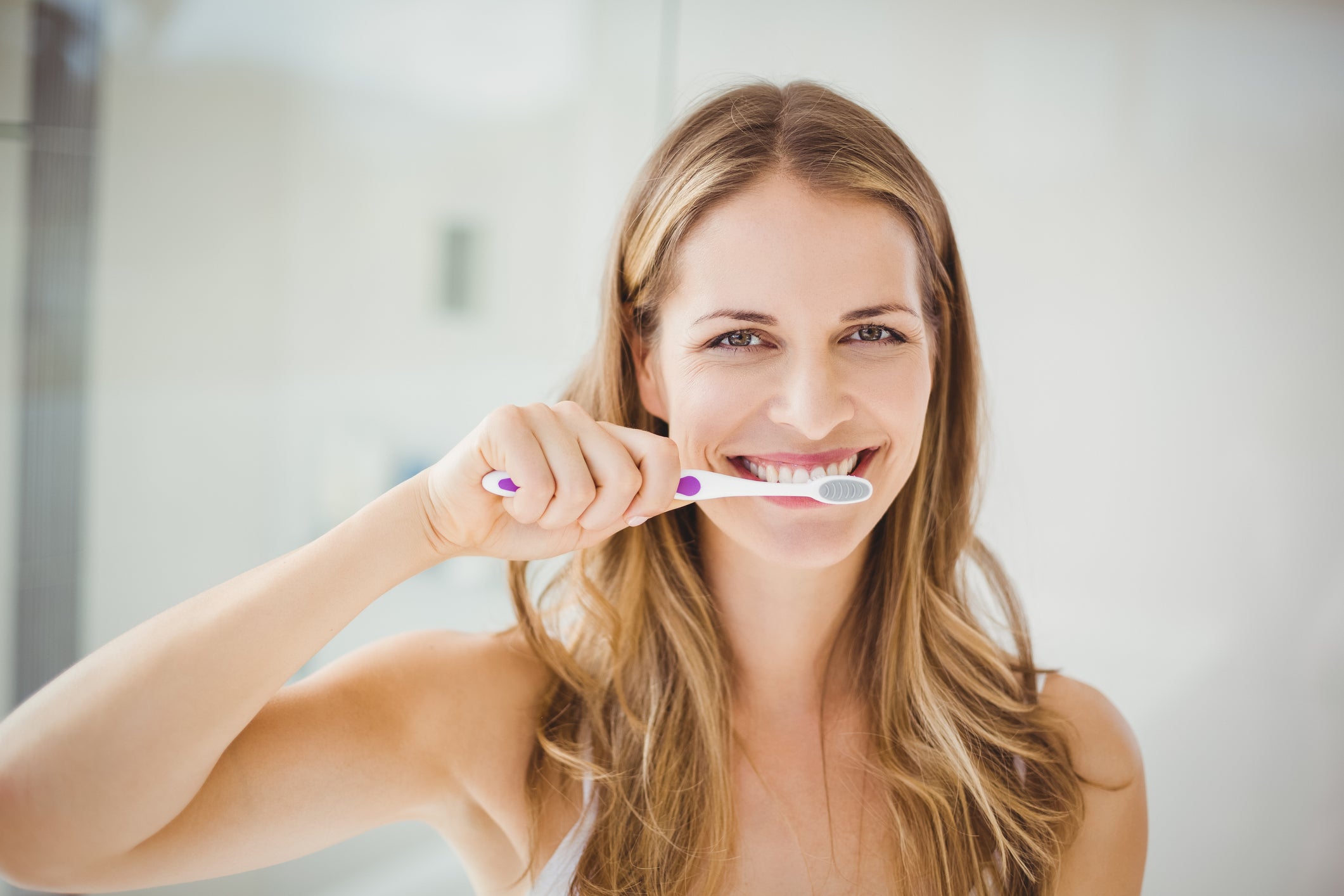 Woman taking care of dental health by brushing teeth.
Woman taking care of dental health by brushing teeth.Oral Health and Overall Health
Did you know that the health of your mouth and the overall health of your body are connected? In fact, there is a bidirectional relationship between chronic illness and oral health. Some chronic diseases are directly associated with oral health issues, either causing or being caused by them. In other cases, there’s an indirect relationship, or shared risk factors. Let’s take a look at how chronic illnesses can affect oral health.
Chronic Diseases are Leading Causes of Death and Disability
Conditions like diabetes, heart disease, respiratory disease, cancers, and obesity can all be linked with poor oral health. Because oral health conditions are often chronic, they can happen alongside other chronic conditions. Unfortunately, people with more than one chronic condition tend to have worse long-term health outcomes than those who only have one chronic condition. Prevention is the key to good health, and maintaining good oral health care can help prevent chronic diseases or improve the outcome for those who suffer from them.
Preventing Gum Disease Can Improve Health
Gum disease is very common, affecting about 75 percent of adults in the United States. If left untreated, gum disease can advance and increase the risk of serious health issues, like diabetes, heart disease/stroke, lupus, oral cancer, organ transplant, and rheumatoid arthritis. Fortunately, when detected early, gum disease can be reversed through good oral hygiene and regular dental care.
How Different Conditions are Connected
- Diabetes, periodontal disease, and tooth decay are interconnected. Though more research is needed, there is evidence to suggest that periodontal disease and tooth decay can exacerbate type 2 and gestational diabetes. This probably occurs because these conditions increase inflammation and blood sugar levels. By the same token, people who have diabetes are at higher risk of infections that can cause tooth decay and periodontal disease.
- Oral health issues may be associated with heart disease. Studies show that periodontal disease and tooth decay may increase a person’s risk of heart disease, or worsen existing heart conditions, by causing inflammation and damaging blood vessels.
- Tooth decay and periodontal disease may be associated with respiratory disease. There are studies that suggest that by causing an increase in bacteria, periodontal disease and tooth decay can increase the risk of respiratory conditions, including emphysema, pneumonia, and COPD, due to bacteria from the mouth colonizing in the respiratory tract. People at highest risk include older people, those who wear dentures, and people with decreased immune system function.
- Periodontal disease and tooth decay may be linked to some cancers. Even after controlling for other risk factors, like smoking and diet, there is evidence to suggest that oral health problems may be connected to cancers like lung, pancreatic, and head/neck cancers. In one study, a 35 percent increased risk for blood cancer and 21 percent increased risk for cancer in general for men with periodontal disease, and another suggests that there is also a 63 percent increased risk of pancreatic cancer. Still another study suggests a 43 percent higher risk of esophageal cancer and a 52 percent higher risk of stomach cancer for those with periodontal disease, as compared to people with healthy gums.
- Obesity may increase the risk of oral health issues. The result of preliminary research on obesity and oral health speculates that secretions from adipose tissue increase the risk of inflammation, decreasing immunity as well as blood flow to the gums.
Talk to Your Dentist About Your Medications
Sometimes, the drugs prescribed for chronic illnesses can cause side effects that impact their oral health. For instance, swollen and bleeding gums, along with dry mouth can be side effects of medications for hypertension and heart conditions. Some drugs for high blood pressure can cause gum overgrowth, which can lead to decay and progressive gum disease. Because inflamed gums bleed easily, there is also a risk for ulceration and soreness. Other medications for hypertension can reduce saliva production, putting patients at risk for dry mouth and tooth decay. Heart medications like anticoagulants and blood thinners can raise a patient’s risk for prolonged bleeding, and can cause gums to bleed during brushing. There is also a risk, with these medications, of post-extraction bleeding or bleeding during cleaning. Your dentist might want to talk to your doctor about changing your medication.
Partner with Park 56 for a Healthy Mouth
If you’re looking for a dentist in New York, why not choose the dentist voted best in the city? At Park 56 Dental Group, we offer pediatric, prosthodontics, endodontics, oral surgery, Invisalign®, emergency, and sedation dentistry, all at the highest level of treatment. We serve the Midtown, Central Park, Upper East Side, Park Avenue, and all surrounding Manhattan and New York areas, with a patient-centered practice that has hours to fit your schedule. Schedule your complimentary consultation today by contacting us online or calling us at (212) 826-2322.
-
Foods that Naturally Help Prevent Cavities

Healthy food for healthy teeth.
Avoiding Cavities
You have heard since childhood that eating too many sugary sweets will give you cavities. As an adult, you might even be aware that simple carbs, dried fruit, and acidic foods can all lead to the formation of cavities. What you may not know, though, is that you can be proactive in what you eat, and consume foods that actually prevent cavities instead of just avoiding foods. Read on- we’ve got the scoop on eating foods that are good for your teeth.
Healing Cavities
If you think about the human body, it’s pretty amazing, in the ways it heals itself. Our immune systems rush to repair damage caused by a wound or injury, which is remarkable. Did you know that the mouth can heal itself, too? Saliva helps remineralize your teeth and stop tooth decay in the early stages. However, as with other part of the body, the mouth’s healing process requires the support of the right vitamins and minerals. To heal cavities before they take hold, eat foods rich in the following nutrients:
- Calcium
- Vitamin D
- Vitamin K2
- Magnesium
- Phosphorus
- Xylitol
Understanding Cavities
Do you know how cavities form? It’s a complex process, and can take days, weeks, or even months. First, plaque forms when bacteria and food particles coat the surface of the tooth and are allowed to remain there. Plaque buildup increases as the plaque is fed by carbohydrates like sugars or bread, and as this happens, the plaque excretes acids that wear away at the tooth. If this is allowed to continue, the acid results in cavities, which are holes in the teeth. Once you have cavities, it makes it easier to spread infection and harder to maintain dental hygiene, creating a vicious cycle. That’s why it’s so important to fill your diet with foods that counteract cavities.
Foods that Help Prevent Cavities
While simple starches fuel cavity-causing bacteria, certain foods and drinks strengthen your teeth and lower the risk of cavities by reducing unhealthy bacteria in your mouth. Eggs and dairy provide vitamin D, and yogurt boosts immunity with probiotics. Another benefit of dairy foods, like milk, cheese, and yogurt, is that they’re rich in calcium, which strengthens bones and teeth. Other calcium rich foods include canned sardines and salmon (with edible bones), almonds, leafy greens, broccoli, seeds, beans and lentils, rhubarb, figs, and amaranth. Vitamin K2 helps the body move calcium from the bloodstream to bones and teeth, and this nutrient can be found in beef or chicken liver, chicken breast, butter, sauerkraut, ground beef, and salami. Beans are rich in phosphate, which helps remineralize teeth, and another nutrient that helps with this process is potassium, found in avocados. The magnesium you need to support healthy teeth is found in leafy greens, nuts and seeds, whole grains, quinoa, soy, tofu, and avocado, and blackstrap molasses. Sweet potatoes are very high in vitamin A, which promotes salivary function and balances oral pH and reduces cavity-causing bacteria. Tea also reduces harmful bacteria and drinking it can prevent cavities, but it’s also important to drink plenty of water, to rinse debris from your teeth throughout the day.
Providing Support to Your Teeth
Remineralizing your teeth requires preventing tooth decay from disrupting the natural remineralization process. In addition to a healthy diet, there are some other best practices that can help:
- Brush your teeth twice a day. Using gentle circles angled at your gums, brush with a soft-bristled toothbrush to help remove harmful bacteria from your teeth.
- Floss at least once a day. Floss with string floss or use an irrigator. Better yet, use both, to reduce double the plaque buildup.
- Use good toothpaste. High-quality fluoride toothpaste, approved by the American Dental Association (ADA), can help with remineralization.
- See your dentist regularly. Visiting your dentist twice a year for a deep cleaning and an exam can help catch oral health issues before they become problems.
Partner with Park 56 to Protect Your Teeth
If you’re looking for a dentist in New York, why not choose the dentist voted best in the city? At Park 56 Dental Group, we offer pediatric, prosthodontics, endodontics, oral surgery, Invisalign®, emergency, and sedation dentistry, all at the highest level of treatment. We serve the Midtown, Central Park, Upper East Side, Park Avenue, and all surrounding Manhattan and New York areas, with a patient-centered practice that has hours to fit your schedule. Schedule your complimentary consultation today by contacting us online or calling us at (212) 826-2322.
-
The Dangers of Teeth Grinding and How to Prevent it
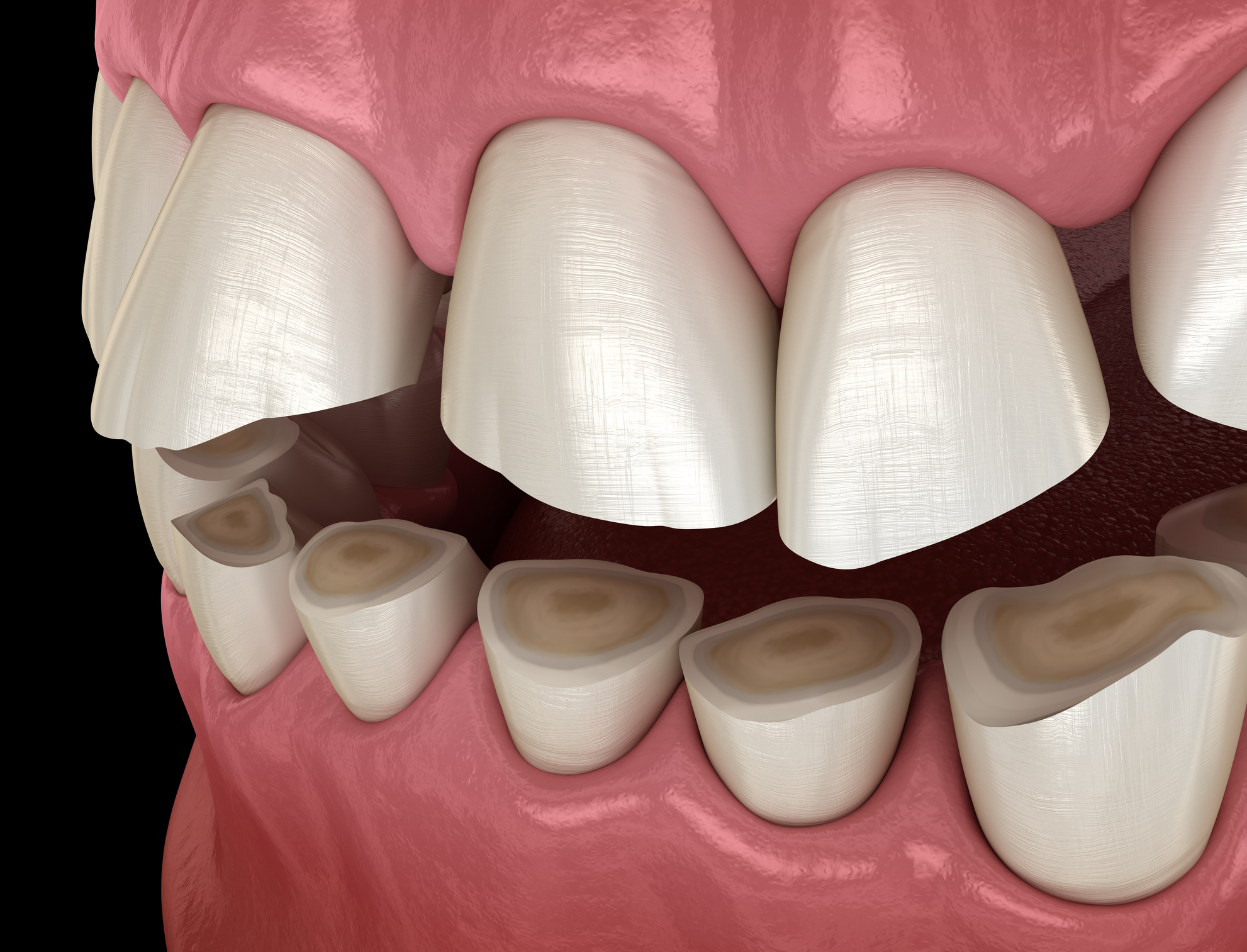
Effects of teeth grinding
Do you suffer from bruxism?
Do you grind your teeth? You might, without even knowing it. If you experience headaches, jaw pain, aching teeth, and throbbing temples, you may be grinding your teeth at night. Teeth grinding is a disorder known as bruxism, and it’s common, affecting as much as 30 percent of all people. Mild teeth grinding may not be a problem, but frequent or serious grinding can cause permanent mouth, jaw, or tooth damage if it’s not addressed. Here’s what you need to know.
The Dangers of Grinding Your Teeth
Tooth grinding can happen during waking or sleeping hours, and often, people don’t realize they’re doing it. Clenching your jaw without noticing or grinding and gnashing your teeth at night, though, can be damaging because the jaw can clamp down with 250 pounds of force. That much force can crack or break the teeth, as well as wearing down the enamel, and it can also cause chronic pain in the head, neck, and ears. Bruxism can lead to health problems like migraines, tinnitus, and sensitivity to noise, and some people even require a total joint replacement when the grinding gets so severe that it wears down the jaw cartilage.
Why Bruxism Happens
Sometimes, bruxism is a sign of stress. Clenching your muscles when you’re stressed, anxious, angry, or overwhelmed is a natural response, and if you are perpetually feeling those emotions, your clenched jaw can lead to nighttime tooth grinding. Certain medical conditions can lead to bruxism, like Huntington’s disease and Parkinson’s disease, and tooth grinding can also be the result of an existing sleep disorder. Sometimes, the medication you’re taking can cause you to grind your teeth. Antidepressants, antipsychotics, and amphetamines are all known causes of nighttime tooth grinding. If your teeth are misaligned, clenching and gnashing is even more likely to occur.
How do you know you’re doing it if you don’t know you’re doing it?
Your partner might be the first to notice, because bruxism can be noisy. Scraping, grinding, and clicking sounds can be loud enough to disrupt the sleep of a person sleeping in the same room as someone suffering from bruxism. Some people find they grind their teeth because of a dental visit. Grinding the teeth can wear them down, and sometimes the dentist is the first to notice. There are symptoms that you can catch, though, if you’re paying attention. Jaw pain and stiffness, tooth sensitivity, chipped or broken teeth, sore gums, clicking jaw joints, chronic headaches, earaches, or any evidence of excessive wear should prompt you to make an appointment with your dentist.
Preventing and Treating Bruxism
Your dentist is a powerful ally in the struggle with tooth grinding. Having a thorough dental exam can help you to determine the reasons you’re grinding your teeth, and your dentist can treat bruxism, sometimes with a measure as simple as a custom mouth guard you can wear while you’re sleeping. There are some steps you can take on your own, as well. Try employing stress reduction techniques, like deep breathing, mindfulness exercises, and yoga. Make sure your bedroom is your oasis, cool, dark, and quiet, with no TVs, computers, or phones. Try sleeping on your side or stomach, and work on daytime habits too, cutting back on caffeine and alcohol, avoiding chewing gum or biting on things that aren’t food, and establishing a relaxing bedtime routine. Physical therapy can help, especially through the use of massage, compresses, and mouth stretching exercises, and certain medications, like anti-inflammatory drugs or muscle relaxants, can be beneficial in treating bruxism.
Finding the Right Dentist
If you think your bruxism is causing issues, the first step towards fixing the problem is seeing a good dentist. If you’re looking for a dentist in New York, why not choose the dentist voted best in the city? At Park 56 Dental Group, we offer pediatric, prosthodontics, endodontics, oral surgery, Invisalign®, emergency, and sedation dentistry, all at the highest level of treatment. We serve the Midtown, Central Park, Upper East Side, Park Avenue, and all surrounding Manhattan and New York areas, with a patient-centered practice that has hours to fit your schedule. Schedule your complimentary consultation today by contacting us online or calling us at (212) 826-2322.
-
Understanding the Different Stages of Tooth Decay: From Early Signs to Advanced Damage
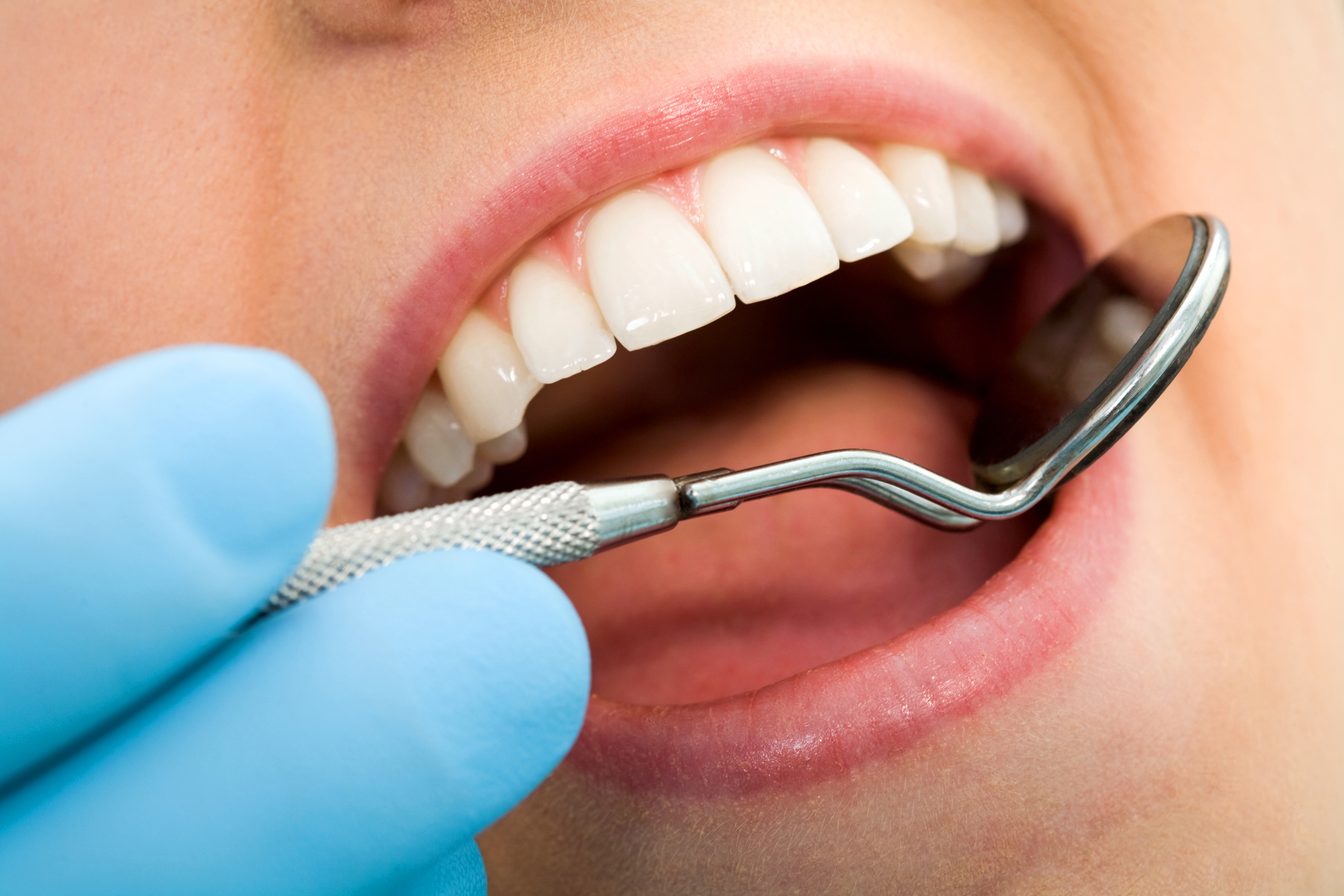
Checking for tooth decay
Understanding Tooth Decay
You know that your dentist looks for signs of tooth decay, and you probably know that good oral hygiene and a nutritious diet can help prevent it. What you may not know, however, is that tooth decay happens in five distinct stages. If you can catch it in the early stages, it can be reversed, so it pays to know what you’re looking for when you examine your teeth. Here, we discuss the five stages of tooth decay, from early signs to advanced damage.
The Five Stages of Tooth Decay
- Stage One- Demineralization: You might not realize it, but there are initial warning signs before a cavity develops. The outermost layer of your teeth is made of enamel, the hardest tissue in your body, which is made mostly of minerals. When the tooth is exposed to plaque, the acids caused by bacteria cause enamel to begin to lose minerals. This mineral loss can be seen as white, yellow, or brown spots on the teeth, which can easily be seen on the front teeth but are often missed on the molars.
- Stage Two- Enamel Decay: If the spots of demineralization go unnoticed or untreated, plaque buildup will begin to break down the enamel of the teeth. You might notice sensitivity, which is one of the first physical signs of damage. Weakened enamel can develop small holes known as cavities. This damage can’t be reversed, but a dentist can treat cavities with fillings, inlays, onlays, or crowns.
- Stage Three- Dentin Decay: Under the enamel is the dentin layer, with tissue that is much softer and more sensitive than enamel. As decay progresses, it can spread quickly along this layer, leading to tooth sensitivity and discoloration. Chewing food may become painful, and so can consuming hot or cold food or drinks.
- Stage Four- Pulp Infection: The innermost layer of the teeth is the pulp. This is the layer with the nerves and blood vessels that nourish the teeth and provide sensation. When pup is damaged, it can become inflamed and begin to swell, in a root canal infection. Root canal infections must be treated with endodontic therapy, removing the pulp, and capping the tooth, but if this isn’t an option, the tooth will need to be extracted.
- Stage Five- Abscess: This is the final stage of tooth decay, in which untreated decay spreads beyond the tooth. Bacteria invades the pulp and the surrounding tissues, causing an infection and a pocket of pus known as an abscess. The dentist will need to drain the pus carefully, after which the abscess can be treated with antibiotic and antiseptic medications.
What to Know About Kids and Tooth Decay
Children are more susceptible to tooth decay than adults, because the enamel of baby teeth is thinner than that of adults. In fact, according to the Centers for Disease Control and Prevention (CDC), tooth decay is among the most common childhood conditions in the United States. It might not seem like this is a particularly significant problem, since baby teeth eventually fall out, but it is very important to protect those little teeth. Children need their teeth for chewing and speaking, and baby teeth are the placeholders for adult teeth; losing them to decay can cause adult teeth to grow in incorrectly. To prevent childhood tooth decay, teach your children too brush their teeth thoroughly and limit sugary foods. Additionally, make sure your children have their first dental appointments by the time they turn one year old.
Preventing Tooth Decay
Good oral hygiene is the first line of defense against dental decay. Brush your teeth twice daily, floss regularly, and use mouthwash to reach the bacteria brushing and flossing can miss. Eating a nutritious diet and limiting sugar can help, and so can staying hydrated. See your dentist at least twice a year for checkups and cleanings, and so that the dentist can detect any early signs of decay. Talk to your dentist to find out if preventive measures like fluoride treatments and sealants are right for you.
Partner with Park 56 to Protect Your Teeth
If you’re looking for a dentist in New York, why not choose the dentist voted best in the city? At Park 56 Dental Group, we offer pediatric, prosthodontics, endodontics, oral surgery, Invisalign®, emergency, and sedation dentistry, all at the highest level of treatment. We serve the Midtown, Central Park, Upper East Side, Park Avenue, and all surrounding Manhattan and New York areas, with a patient-centered practice that has hours to fit your schedule. Schedule your complimentary consultation today by contacting us online or calling us at (212) 826-2322.
Park 56 Dental Group_1830990_Blog_August_2023_How to Choose the Right Toothpaste for Your Unique Dental Needs
Meta description: With so many toothpastes on the market, how do you know which to choose? Park 56 Dental Group offers tips on choosing the right toothpaste for you.
How hard can it be to choose a toothpaste?
How do you go about choosing a toothpaste? It seems like it should be easy! Once you get to the store, though, it’s easy to be overwhelmed by all the options. With so many toothpastes from which to choose, how do you pick the right one? Here, we offer some helpful tips for choosing the right toothpaste for your unique dental needs.
Know the Basics
Toothpastes contain abrasive agents, flavoring agents, detergents, humectants, and detergents, and are available in gel, paste, powder, or tablet forms. There are two important things to look for in a toothpaste: fluoride and the ADA seal of approval. Fluoride has been proven to protect against tooth decay and help to remineralize teeth, and the ADA (American Dental Association) must verify that a product is effective before that product can display the seal of approval.
Evaluate Your Dental Needs
Think about what you want a toothpaste to accomplish for you beyond just cleaning your teeth. Some common concerns include bad breath, sensitive teeth, plaque, gum disease, tartar, and yellowing teeth. Once you have assessed what you need, look for a toothpaste that fits with your concerns.
- Preventing cavities: Fluoride is a major factor in preventing cavities and strengthening enamel. Choose a toothpaste with mild abrasives, like hydrated silica or calcium carbonate, to remove plaque and surface stains without damaging enamel.
- Tartar control: Bacteria can cause biofilm on the teeth, and this can lead to plaque. When biofilm traps salivary calcium and phosphate, it crystallizes into tartar, also called calculus. While this is removed by the dental hygienist during your cleanings, it can be helpful to use a tartar control toothpaste in between visits. These toothpastes typically contain ingredients like zinc citrate and triclosan.
- Sensitivity: Dental pain is typically due to dentin hypersensitivity. Toothpastes with potassium and fluoride can help with sensitivity, as can toothpastes with strontium chloride, calcium carbonate, or arginine. Using desensitizing toothpaste for at least eight weeks can help reduce dental pain.
- Gum disease prevention: Toothpaste with ingredients that have antibacterial properties, like triclosan or stannous fluoride, can help prevent gum disease by reducing plaque and gum inflammation.
- Controlling bad breath: Brush your teeth for two to three minutes, at least twice a day, with a fluoride toothpaste. Brush your tongue from back to front, or use a tongue scraper. Baking soda can be effective for eliminating halitosis (bad breath), either in a baking soda toothpaste or on its own.
- Whitening teeth: There are several whitening toothpastes on the market, with bleaching ingredients like silica, pyrophosphates, and hydrogen peroxide. Hydrogen peroxide is a good option because it is gentle and won’t cause irritation in your mouth. If you do experience any uncomfortable symptoms, contact your dentist.
Choosing a Toothpaste for Children
Children over age six typically use adult toothpaste. Before that, as long as the toothpaste meets the fluoride and ADA seal requirements, you can choose a fun toothpaste for your children, to encourage them to brush frequently. Look for fun flavors, sparkles and swirls, or toothpaste in a container decorated with fun characters or superheroes. Make sure, though, that you teach children to spit out the toothpaste instead of swallowing it, because ingesting toothpaste can lead to chronic fluorosis for kids.
Partner with the Dentist Voted Best in New York
If you’re looking for a dentist in New York, why not choose the dentist voted best in the city? At Park 56 Dental Group, we offer pediatric, prosthodontics, endodontics, oral surgery, Invisalign®, emergency, and sedation dentistry, all at the highest level of treatment. We serve the Midtown, Central Park, Upper East Side, Park Avenue, and all surrounding Manhattan and New York areas, with a patient-centered practice that has hours to fit your schedule. Schedule your complimentary consultation today by contacting us online or calling us at (212) 826-2322.
-
Everything You Need to Know About Canker Sores
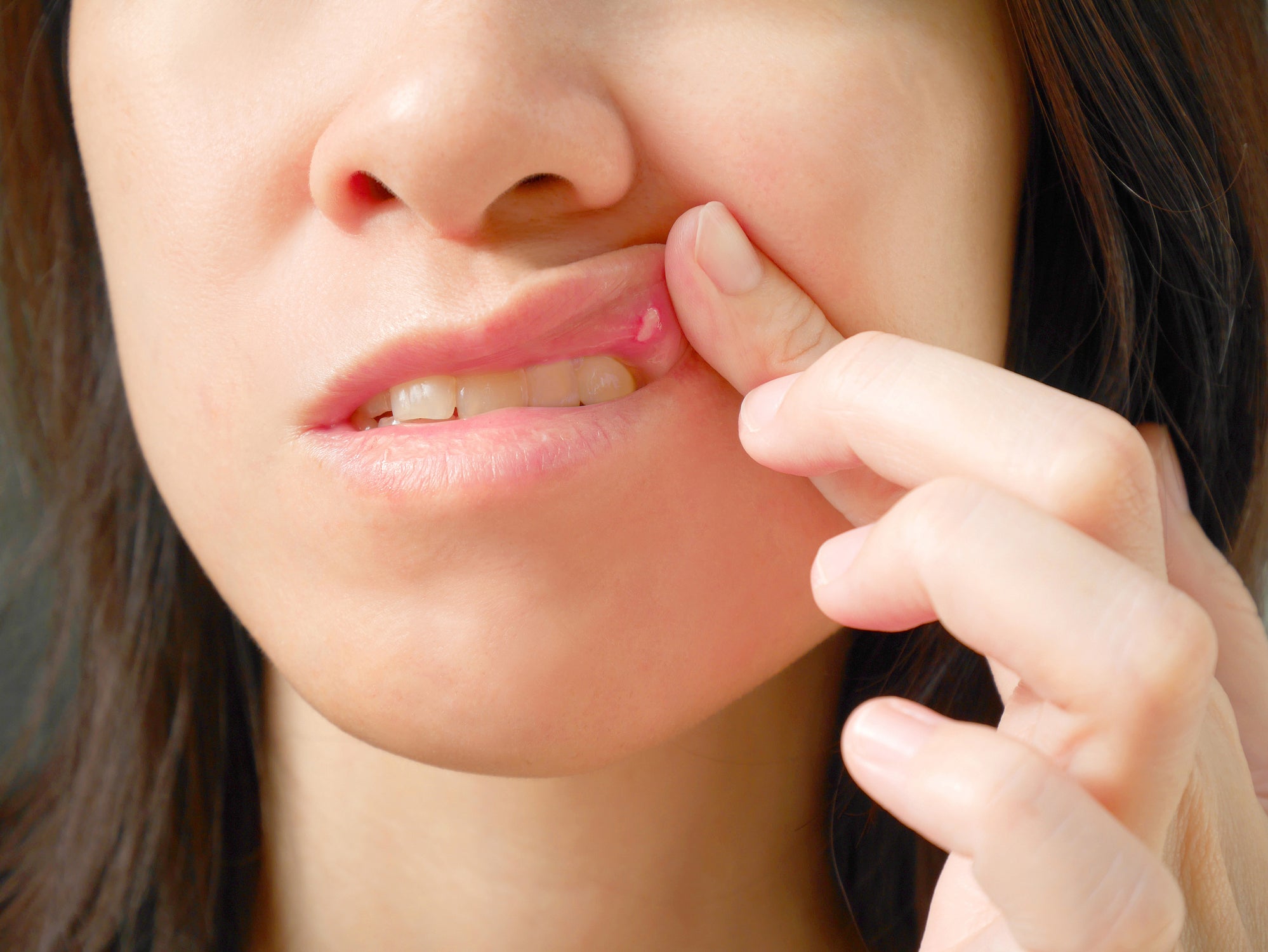
Canker sores are small ulcers that form inside the mouth. They can be very painful and make it difficult to eat or drink. Most canker sores heal on their own within 1-2 weeks. However, there are some things you can do to help relieve the pain and speed up the healing process. In this blog post, we will discuss everything you need to know about canker sores.
What Causes Canker Sores?
The exact cause of canker sores is unknown. However, there are several things that may contribute to their formation, including:
- Stress
- Hormonal changes (e.g., during puberty or menopause)
- Nutritional deficiencies (e.g., iron, vitamin B12, or folic acid)
- Trauma to the mouth (e.g., from toothpaste that is too abrasive or braces that rub against the inside of the mouth)
- Use of certain medications (e.g., blood thinners or drugs that contain sulfur)
- Infections (e.g., viral infections such as herpes simplex virus type 1 or bacterial infections such as strep throat)
How Are Canker Sores Treated?
Most canker sores heal on their own within 1-2 weeks. However, there are some things you can do to help relieve the pain and speed up the healing process. These include:
- Eating soft foods and avoiding spicy, acidic, or crunchy foods that might irritate the sore
- Rinsing your mouth with a saltwater solution
- Applying a topical numbing agent
- Taking over-the-counter pain relievers such as ibuprofen or acetaminophen
- Applying a topical steroid cream
- Undergoing laser treatment (this is usually done by a dentist or doctor)
How Can Canker Sores Be Prevented?
Canker sores are most common in teens and young adults, and can be caused by stress, hormonal changes, or a lack of certain nutrients. While canker sores are not contagious, they can be difficult to get rid of once they form. However, there are some things that can be done to prevent canker sores from forming in the first place:
- Reducing stress through relaxation techniques such as yoga or meditation
- Avoiding foods that you know trigger canker sores
- Practicing good oral hygiene by brushing your teeth twice a day and flossing daily
- Using a soft toothbrush and toothpaste without fluoride
- Wearing mouthguards when playing sports
If you experience frequent or severe canker sores, you should see a dentist or doctor to rule out any underlying medical conditions.
Contact Park 56 Dental Today for Canker Sores Treatment and Advice
If you’re dealing with canker sores, Park 56 Dental can help. We can provide you with tips on how to prevent canker sores from forming in the first place, and we can also provide you with treatment options if you do develop one. Don’t suffer in silence–contact Park 56 Dental today. We’ll be happy to help you get your mouth back to feeling healthy and comfortable again.
-
Why it’s important to seek an Invisalign provider
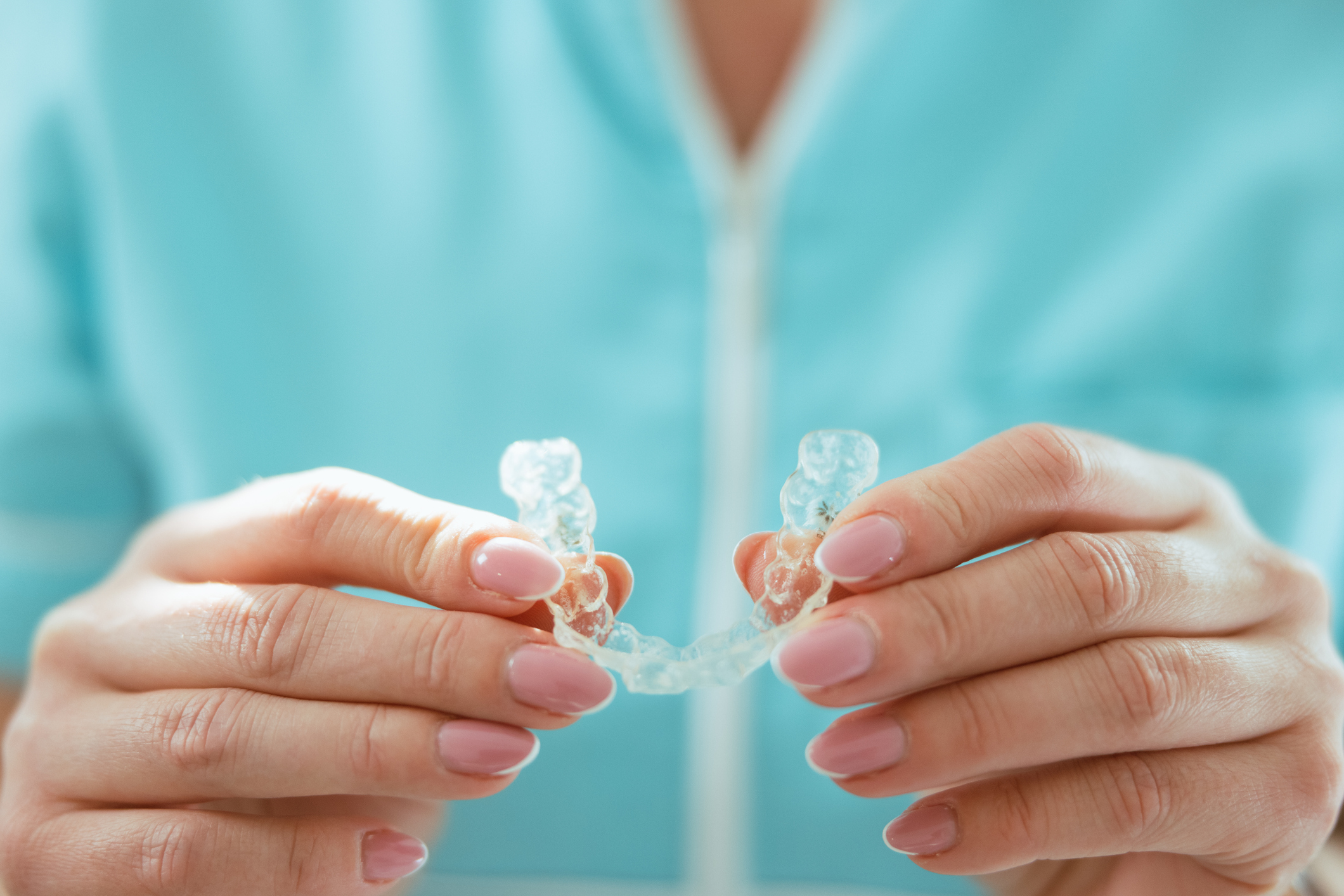
When Invisalign aligners came on the scene, they were a revolutionary idea. Suddenly, people could get beautiful, straight teeth without the hassle of traditional wire braces. Instead, using a series of nearly invisible, removable, comfortable, clear aligners, dentists could straighten teeth in less time than people spend in wire braces. Now, various companies have seized upon this idea and are flooding the market with at home straightening kits. Do they work, or is Invisalign still the right choice?
At-home straightening companies send the customer a kit to make a 3-D mold of their own teeth. This mold is submitted to the company, and a series of clear aligners are sent to the customer periodically. The patient never needs to visit the dentist or orthodontist, which allows these companies to charge far less than a patient would pay for Invisalign. In fact, one leading at-home straightening company estimates that their product is about 60 percent cheaper than traditional teeth straightening.
The problem with these at-home straightening kits is the same thing that makes them inexpensive: they allow patients to skip the orthodontist or dentist. Without professional supervision, patients can actually damage their teeth irreparably. This is because straightening teeth often requires adjustments to the plan, and if you are straightening your teeth on your own, there’s no monitoring of your progress and no professional who could make these adjustments.
Additionally, while a dentist is qualified to create a customized straightening plan for you, at-home straighteners are more of a “one-size-fits-all” product. They don’t work for everyone, and there is no way for these companies to consider all the different factors that could affect your progress. When you bypass the guidance of a dental care professional, you run the risk of missing problems with your jaw or the roots of your teeth. Issues that could have been caught by an x-ray before treatment can end up being complications that can affect the results of your straightening attempts. While an at-home straightening program may cost less upfront, it could end up leading to costly problems in the long run.
If you want to straighten your teeth using clear aligners, the best choice is to seek a qualified Invisalign provider. Your dentist or orthodontist will create a 3D image of your teeth and design a treatment plan that’s customized for you. You’ll wear a series of clear aligners that are removable, so that you can continue to eat your favorite foods while your teeth are being straightened. Each set of aligners will need to be worn for about two weeks, and you’ll see your dentist every six weeks so that your treatment can be monitored and adjusted as needed. The average treatment time for Invisalign is between nine and 15 months.
When you’re ready to find out if you’re a good candidate for Invisalign, choose the practice that was voted best dentist in NYC! At Park 56 Dental Group, we offer pediatric, prosthodontics, endodontics, oral surgery, Invisalign®, emergency, and sedation dentistry, all at the highest level of treatment. We serve the Midtown, Central Park, Upper East Side, Park Avenue, and all surrounding Manhattan and New York areas, with a patient-centered practice that has hours to fit your schedule. Schedule your complimentary consultation today by contacting us online or calling us at (212) 826-2322.
-
Different Bites That Could Be Affecting Your Oral Health
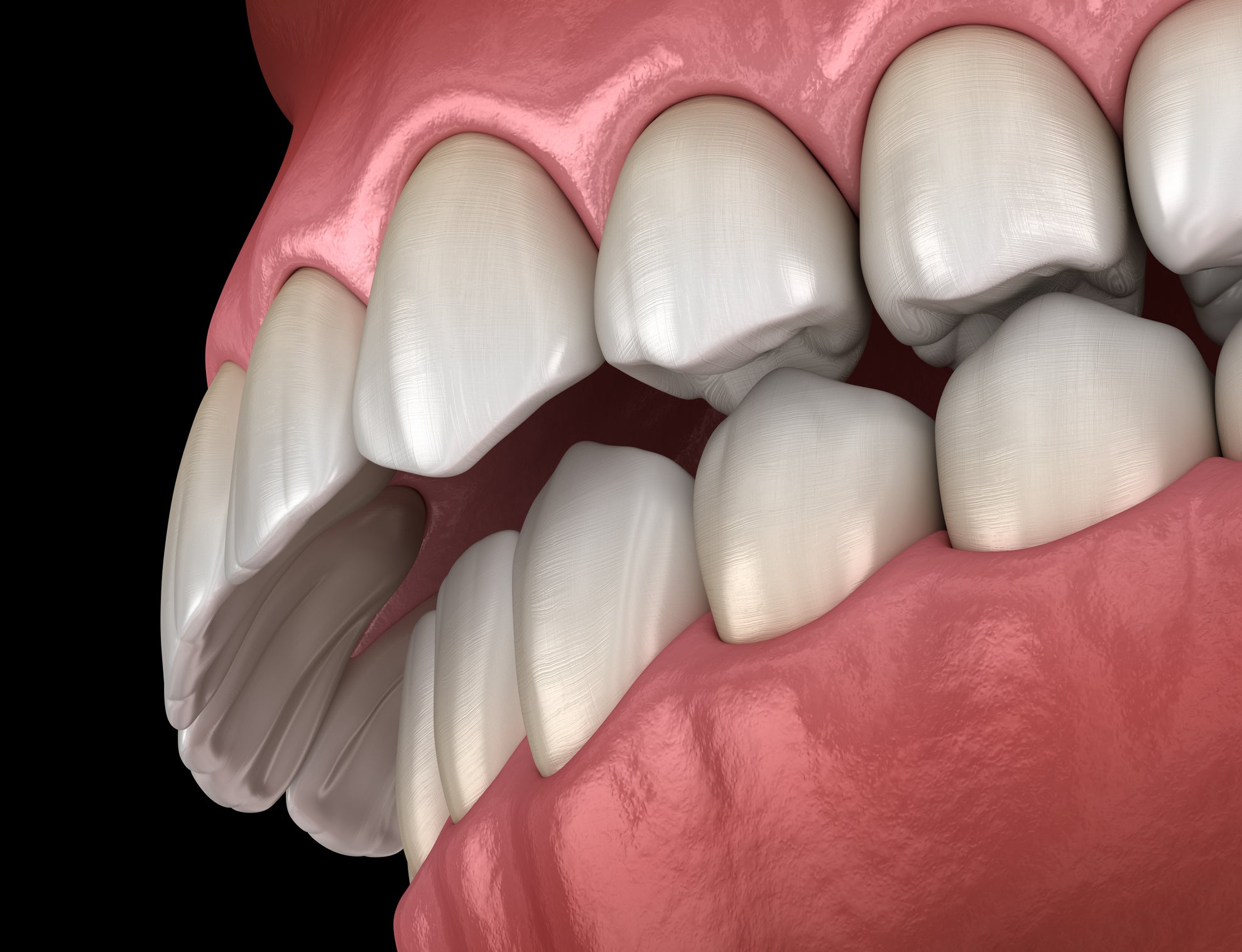
How is your bite? Did you know that only about 30 to 40 percent of the population have what’s considered a perfect bite? The rest of us suffer from some kind of malocclusion, in which don’t meet the way they should and sometimes don’t meet at all. Everyone’s bite is uniquely their own, but there are some general types of bites that could be affecting your oral health.
- If you have a crossbite, your upper teeth fit inside your lower teeth. Sometimes only a single tooth is affected, but crossbite can also affect a group of teeth, or all of your teeth. Sometimes, different parts of your upper teeth hit different parts of your lower teeth, coming down in front and behind them. This can cause the jaw to shift to one side and can wear down your enamel.
- With an underbite, the lower jaw protrudes in front of the upper jaw. This can give a person a bulldog appearance, and it can put unnecessary stress on the joints in the jaw.
- When a person has an overbite, the top teeth protrude in front of the lower teeth. While the upper teeth are supposed to be a little bit in front of the lower teeth, when they are too far in front it can create a bucktoothed look. In the case of a deep bite, the upper teeth can completely cover the bottom teeth. In extreme cases, the teeth can dig into the gums, raising the risk of gum disease.
- An open bite, just as it sounds, means the upper and lower teeth do not meet when the jaw is closed. This can happen because of tongue thrusting or mouth breathing, and it can cause swallowing problems or speech problems if it’s not corrected.
- If your teeth are crowded, this means they’re too close together. The problem may be that you have a small mouth, or perhaps large teeth, but whatever the case, it results in teeth that are twisted, overlapping, or trapped. Crowded teeth are difficult to clean, raising your risk of cavities and gum disease.
- When teeth have too much room, dentists talk about spacing. If you have undersized teeth, oversized jaws, missing teeth, or a combination of these factors, you might have spacing issues.
- Misalignment is a vague term that means your teeth are crooked. If your dentist says you have a misalignment, you may not have as severe a problem as people with some of these other types of bites, but your teeth simply don’t quite fit together. Fortunately, your dentist or orthodontist can help you get them back in line.
When you’re ready to fix your bite, choose the practice that was voted best dentist in NYC! At Park 56 Dental Group, we offer pediatric, prosthodontics, endodontics, oral surgery, Invisalign®, emergency, and sedation dentistry, all at the highest level of treatment. We serve the Midtown, Central Park, Upper East Side, Park Avenue, and all surrounding Manhattan and New York areas, with a patient-centered practice that has hours to fit your schedule. Schedule your complimentary consultation today by contacting us online or calling us at (212) 826-2322.
-
Foods That are Secretly Ruining Your Teeth

There are certain foods that everyone knows are bad for your teeth, like sticky candy and sugary sodas. Other foods, though, are a little sneakier. In fact, you may be eating a healthy diet and still be damaging your teeth. Don’t worry, if your favorite foods are on this list, you don’t have to give them up forever. Just make sure that you’re aware of the damage they can do, eat them in moderation, and keep up with your oral hygiene and regular dental check-ups.
- It might surprise you to learn that fresh fruit can damage your teeth. It’s a healthy choice for a snack, but some fruit is also high in enamel-eroding acid and cavity-causing sugar. Apples, citrus fruits, and strawberries all fall into this category, but that doesn’t mean you shouldn’t eat them. Just make sure to rinse your mouth with water to help clean the sugars and acid from your teeth.
- Dried fruit is worse than fresh fruit when it comes to oral health. They’re a great source of fiber, but they contain a lot of sugar and they’re sticky enough to cling to your teeth. All that sugar stuck to your teeth creates the perfect environment to welcome bacteria and cause cavities.
- Popcorn is a nearly irresistible snack, but it’s not great for your teeth. First, it’s high in carbs, which turn into sugars and feed bacteria. Then, the kernels and other particles can get stuck in your teeth or lodged in your gums. Popcorn bits between the teeth help bacteria grow, and when you pull kernels from under your gums, they leave gaps where bacteria can invade. If you can’t resist snacking on popcorn, make sure to brush and floss afterwards.
- What you drink can be just as damaging as the things you eat. Diet soda may seem like a good alternative to regular soda, but the acid in the soda can damage your enamel, and the artificial sweeteners promote the growth of bacteria. Fizzy waters with natural flavors are a better option because they don’t have sugar or sweeteners. Wine, coffee, and tea can all stain your teeth, and sports drinks tend to be loaded with sugar. Limit these beverages, and when you do drink them, make sure to follow up with a glass of water to rinse your teeth.
- Watch how you eat nuts. When choosing a nut butter, pick one without added sugars. If you’re eating almonds, choose slivered almonds to reduce the risk of cracking your teeth.
- Pickles can wear down your tooth enamel. Sweet pickles are especially bad for your teeth because of the added sugar, but even dill pickles have acid that’s very damaging. To cut the acidity, enjoy pickles in moderation and rinse your mouth with water after eating them. Eating cheese with your pickles can also help neutralize the acid.
- Beware of bread. Bread may seem harmless enough, but when your saliva breaks down the starch in bread, it converts it to sugar. White bread is the worst, because it sticks to your teeth, so choose whole grain bread for your sandwiches.
- Water is great for your teeth, unless it’s frozen. When you chew on ice, you can chip away your tooth enamel and even break your teeth. Instead of chewing on ice, reach for celery sticks or baby carrots for that satisfying crunch.
No matter what you eat, regular dental appointments are the key to keeping your teeth healthy. When it’s time for a check-up, choose the practice that was voted best dentist in NYC! At Park 56 Dental Group, we offer pediatric, prosthodontics, endodontics, oral surgery, Invisalign®, emergency, and sedation dentistry, all at the highest level of treatment. We serve the Midtown, Central Park, Upper East Side, Park Avenue, and all surrounding Manhattan and New York areas, with a patient-centered practice that has hours to fit your schedule. Schedule your complimentary consultation today by contacting us online or calling us at (212) 826-2322.
-
How to Care for Your Teeth During the Holidays
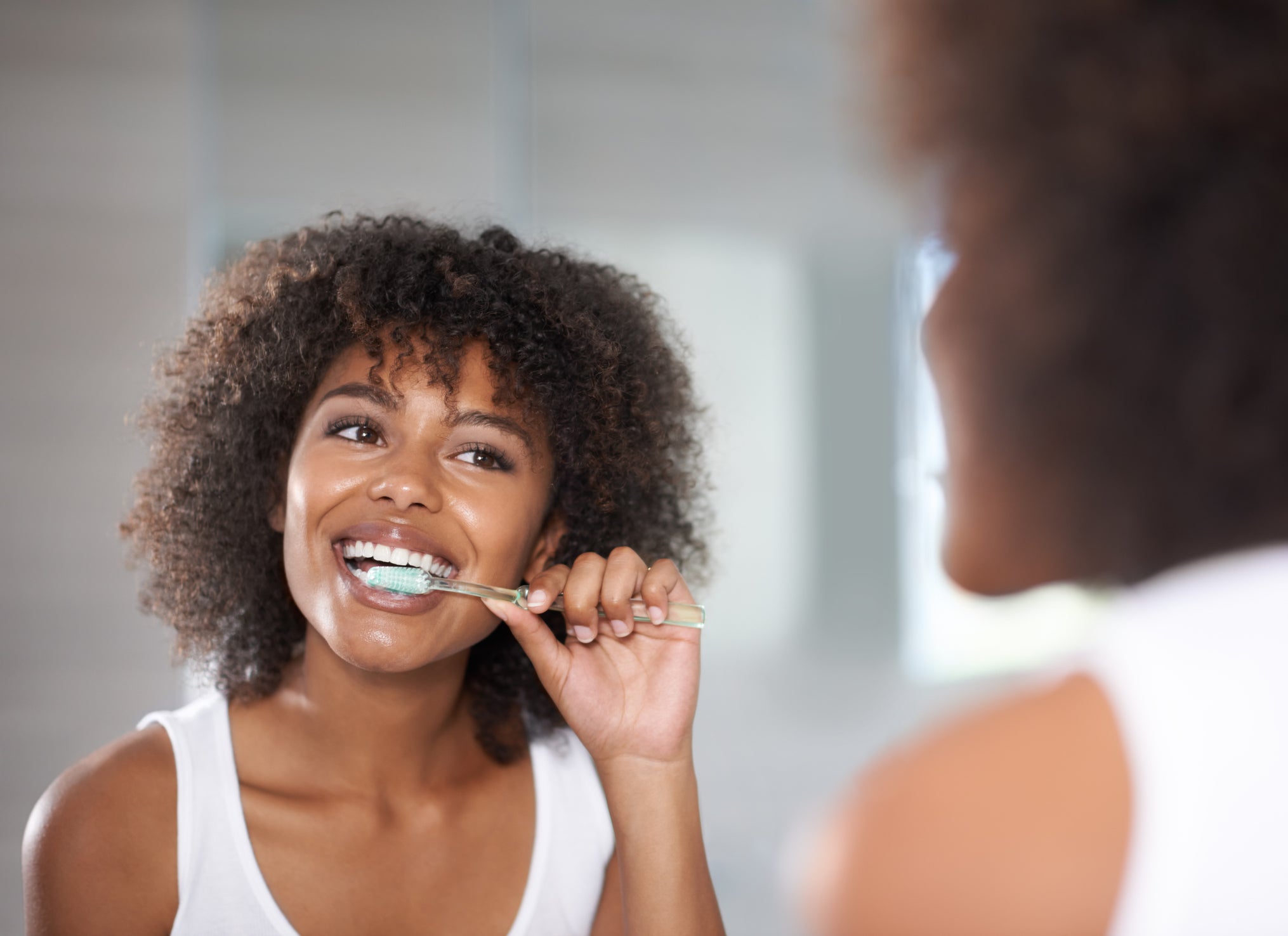
The holidays are upon us! What a whirlwind of a season, as we dash from one event to the next. Many of these events are full of rich foods and sweet treats, and there’s often no time to think about much beyond the next thing on the calendar. Whatever you do during the holidays, take care not to neglect your dental care. Here are some tips for keeping your teeth fresh, clean, and healthy, all the way into the new year!
- Make sure you’ve got healthy food in the mix. While you’re nibbling, munching, and feasting, intersperse healthy snacks with your decadent treats. Crunchy fruits and vegetables are great for your teeth, and so are cheese and whole grains.
- Take care not to overdo the sweets. This time of year, temptations are omnipresent! Popcorn balls, candy canes, and other sticky sweet treats are particularly bad for your teeth, but that doesn’t mean you have to forgo them entirely. Just stick to one dessert and then brush your teeth, to reduce your risk of tooth decay.
- Don’t use your teeth as tools. Cracking nuts, pulling out wine corks, opening packages, and all the other ways you can use your teeth instead of heading to the toolbox or kitchen drawer for a more suitable tool should be outlawed. The last thing you want to do this holiday season is end up with a broken tooth, so use your teeth only for eating and smiling.
- Drink plenty of water and keep your drinks light. Water is good for every system in your body, and it can help fill your stomach so that you don’t overeat. What’s more, it’s extremely helpful in washing away bacteria before plaque can form on your teeth. If you want to drink something other than water, steer clear of sugary beverages and choose drinks that are light-colored, as well. You’ll be doing your teeth a favor by keeping them clean and white.
- Stick to your routine. Brush your teeth at least twice a day, even if you’re on the go. Facilitate this by keeping a toothbrush and small tube of toothpaste handy at all times, in your purse, briefcase, or car, so that you can take care of your teeth even if you’re away from home.
- Don’t wait to fix any dental issues. Even if you’re out of town, don’t let a broken tooth or lost filling go without treatment. Call a local dental office for an emergency appointment; most dentists are prepared to accept visiting patients at this time of year.
- Schedule a cleaning for after the holiday season. You want to start the new year with a gorgeous smile and a healthy mouth, right? Go ahead and make your post-holiday checkup now, so that as soon as this hectic season draws to a close, you can get back into the swing of taking care of yourself.
When you’re ready to schedule your post-holiday dental check-up, choose the practice that was voted best dentist in NYC! At Park 56 Dental Group, we offer pediatric, prosthodontics, endodontics, oral surgery, Invisalign®, emergency, and sedation dentistry, all at the highest level of treatment. We serve the Midtown, Central Park, Upper East Side, Park Avenue, and all surrounding Manhattan and New York areas, with a patient-centered practice that has hours to fit your schedule. Schedule your complimentary consultation today by contacting us online or calling us at (212) 826-2322.
RECENT POSTS
categories
- Uncategorized
- Cosmetic Dentistry
- Veneers
- Healthier Teeth
- Teeth Whitening
- Dental Health
- Video
- Dental Emergencies
- Invisalign
- Dental Implants
- Root Canal
- Sedation Dentistry
- Infographic
- Dental Crowns and Bridges
- Dental Anxiety
- Gum Disease
- COVID-19
- Bad Breath
- New York Dentist
- Cut out sugar
- General Dentistry
- Oral Health
- Oral Cancer
- Dry Mouth
- Gum Health
- Toothache
- Dental Sealants
- Cavities
